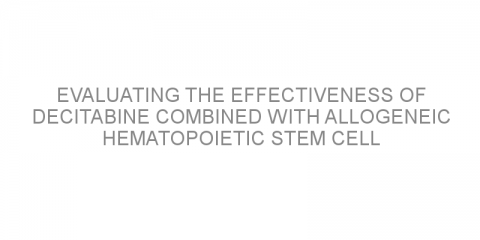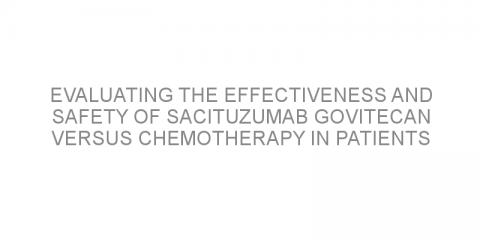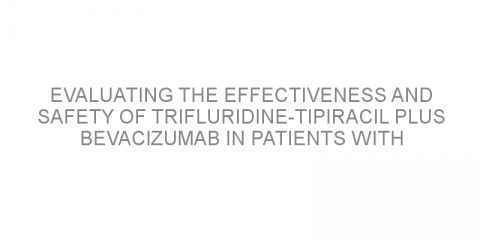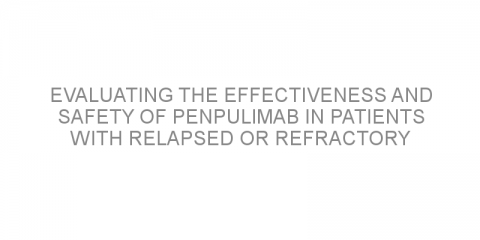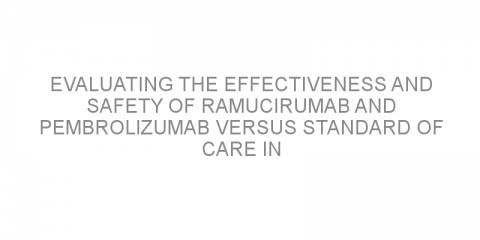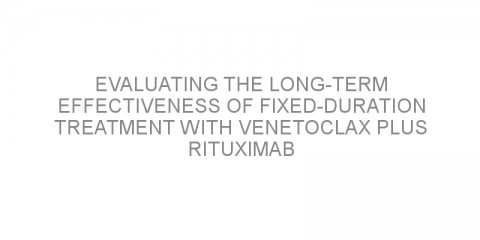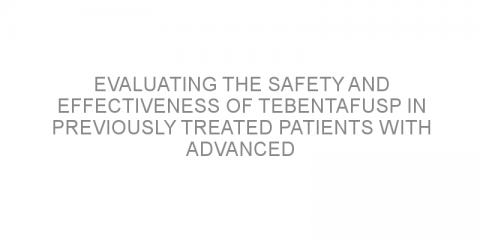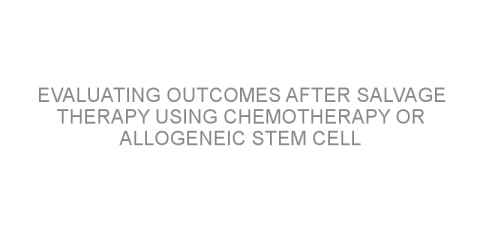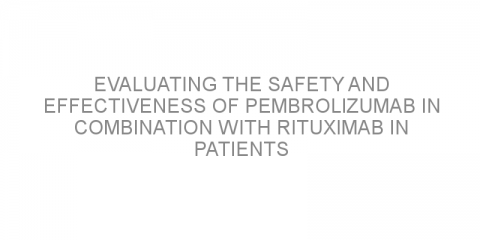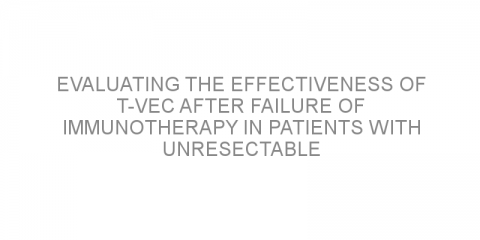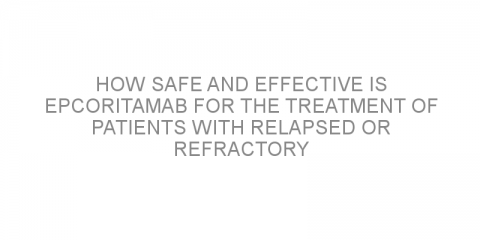In a nutshell This study evaluated the effectiveness of decitabine (Dacogen) combined with allogeneic hematopoietic stem cell transplantation (allo-HSCT) for the treatment of patients with recurrent and refractory (r/r) acute myeloid leukemia (AML). The data showed that decitabine combined with allo-HSCT reduced the risk of recurrence and improved...
Read MoreCurrent treatment status-Undergoing active treatment-No response Posts on Medivizor
Evaluating the effectiveness and safety of sacituzumab govitecan versus chemotherapy in patients with HR+, HER2– metastatic breast cancer.
In a nutshell This study investigated the effectiveness and safety of sacituzumab govitecan (Trodelvy; SG) compared to chemotherapy in patients with hormone receptor-positive (HR+)/HER2-negative (HER2-) metastatic breast cancer (BC). The data showed that SG significantly improved survival without cancer progression compared to chemotherapy in these...
Read MoreEvaluating the effectiveness and safety of trifluridine-tipiracil plus bevacizumab in patients with resistant metastatic colorectal cancer
In a nutshell This study evaluated the effectiveness and safety of the combination of trifluridine-tipiracil (Lonsurf) and bevacizumab (Avastin) in patients with unresponsive (refractory) metastatic colorectal cancer (mCRC) in a real-world setting. The main finding was that trifluridine–tipiracil plus bevacizumab was safe and effective in...
Read MoreEvaluating the effectiveness and safety of penpulimab in patients with relapsed or refractory classical Hodgkin lymphoma.
In a nutshell This study evaluated the effectiveness and safety of penpulimab (AK105) for the treatment of patients with relapsed or refractory (r/r) classical Hodgkin lymphoma (cHL). The data showed that penpulimab was effective and safe with manageable side effects in these patients. Some background Classical Hodgkin lymphoma (cHL) is a cancer of...
Read MoreEvaluating the effectiveness and safety of ramucirumab and pembrolizumab versus standard of care in previously treated patients with advanced NSCLC.
In a nutshell This study investigated the effectiveness and safety outcomes of ramucirumab (Cyramza) and pembrolizumab (Keytruda) versus standard of care (SOC) in previously treated patients with advanced non-small cell lung cancer (NSCLC). The data showed that ramucirumab and pembrolizumab significantly improved overall survival compared with SOC in...
Read MoreEvaluating the long-term effectiveness of fixed-duration treatment with venetoclax plus rituximab in patients with relapsed or refractory chronic lymphocytic leukemia.
In a nutshell This study evaluated the long-term effectiveness of fixed-duration treatment with venetoclax (Venclexta) plus rituximab (Rituxan) in patients with relapsed or refractory (r/r) chronic lymphocytic leukemia (CLL). The data showed that fixed-duration treatment with venetoclax plus rituximab was effective over the long term in these...
Read MoreEvaluating the safety and effectiveness of tebentafusp in previously treated patients with advanced uveal melanoma
In a nutshell The study evaluated the safety and effectiveness of tebentafusp (Kimmtrak) in patients with metastatic uveal melanoma who had received previous treatments. The study found that tebentafusp had promising effectiveness and a good safety profile in these patients. Some background Uveal melanoma is a rare and aggressive eye tumor....
Read MoreComparing salvage intensive chemotherapy and venetoclax combined with low-intensity regimens in patients with relapsed/refractory acute myeloid leukemia
In a nutshell The study aimed to compare salvage intensive chemotherapy (IC) and a venetoclax (Venclexta; VEN)-combined low-intensity regimen in patients with relapsed/refractory (r/r) acute myeloid leukemia (AML). This study concluded that the VEN-combined regimen provided similar responses and survival rates when compared to...
Read MoreEvaluating outcomes after salvage therapy using chemotherapy or allogeneic stem cell transplantation for unresponsive acute myeloid leukemia
In a nutshell This study aimed to investigate the impact of salvage treatment using either chemotherapy (CT) or allogeneic hematopoietic stem cell transplant (allo-HSCT) on the overall outcome in patients with refractory (unresponsive) acute myeloid leukemia (AML). This study concluded that allo-HSCT benefits these patients and that direct...
Read MoreEvaluating the safety and effectiveness of pembrolizumab in combination with rituximab in patients with relapsed or refractory follicular lymphoma.
In a nutshell This study evaluated the safety and effectiveness of pembrolizumab (Keytruda) in combination with rituximab (Rituxan) in patients with relapsed or refractory (r/r) follicular lymphoma (FL). The data showed that pembrolizumab in combination with rituximab was safe and effective in these patients. Some background Follicular lymphoma (FL)...
Read MoreEvaluating the effectiveness of T-VEC after failure of immunotherapy in patients with unresectable metastatic melanoma.
In a nutshell This study evaluated the effectiveness of talimogene laherparepvec (Imlygic; T-VEC) after failure of immunotherapy for the treatment of patients with unresectable metastatic melanoma. The data showed that T-VEC after the failure of immunotherapy is safe and effective in these patients. Some background Melanoma is an aggressive type of...
Read MoreHow safe and effective is epcoritamab for the treatment of patients with relapsed or refractory B-cell non-Hodgkin lymphoma?
In a nutshell The authors investigated the safety and effectiveness of epcoritamab (DuoBody-CD3xCD20) for the treatment of patients with relapsed or refractory (r/r) CD20+ B-cell non-Hodgkin lymphoma (B-NHL). The study showed that this medication has promising effectiveness and safety in these patients. Some background B-NHL is a type of...
Read More
